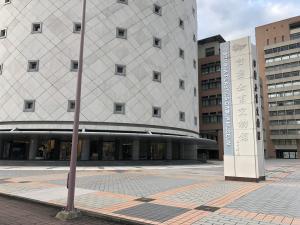Project: Formosa Plastics Global Archive
The Formosa Plastics Global Archive supports a transnational network of people concerned about the operations of the Formosa Plastics Corporation, one of the world's largest petrochemical

The Formosa Plastics Global Archive supports a transnational network of people concerned about the operations of the Formosa Plastics Corporation, one of the world's largest petrochemical

This essay provides a brief overview of restorative justice and its relation to environment justice.

The Formosa Plastics Archive (FPA) (台灣塑膠檔案館) documents environmental disaster caused by one of the world's largest petrochemical companies.
This is a collaborative photo essay about the Formosa Plastics Group Museum in Taoyuan, Taiwan.

This is a case study collection focused on Yunlin and Changhua Counties, Taiwan, including material focused on environmental activism, litigation, and media analysis related to Formosa Plastics' Si

This collection addresses ongoing efforts to monitor and study the enivornmental health impact of the Formosa's Sixth Naphtha Cracker Complex.
Did you scan the photos and write down the lyrics?
These are important artifacts that carries memories and stories belong to the grandma and her generation, for instance, their relationship with the ocean, fishery and seafood, etc.
https://ubrand.udn.com/ubrand/story/12116/4095581
How do they maintain such relationship in the urban setting? What is the meaning of sea to them after living in Hsinchu for decades? Do they feel the difference between the sea in Hsinchu and inTaidung? Why?
how do artifacts such as songs, grocery stores, fishing tools, etc help Naluwan people claim their identities (cultural, professional, social, personal?)
There are manu artifacts mentioned in your fieldnote--songs, stories, fishing tools, grocery stores, etc. How do you analyze these artifacts--why and how were they constructed, used? What are the social, economic, cultural meanings/functions of these artifacts? And how have these artifacts helped construct the sense of place and identity of the Naluwan people?
you have read Tim Cresswell's book 地方:記憶、想像與認同
can you apply the theory to conceptualize the stories collected from Naluwan--what did the grandma's story teach us about Naluwan people's sense of place and belong when life forced them to move and live in between Meishan and Xianshan, among different ethnic culture?